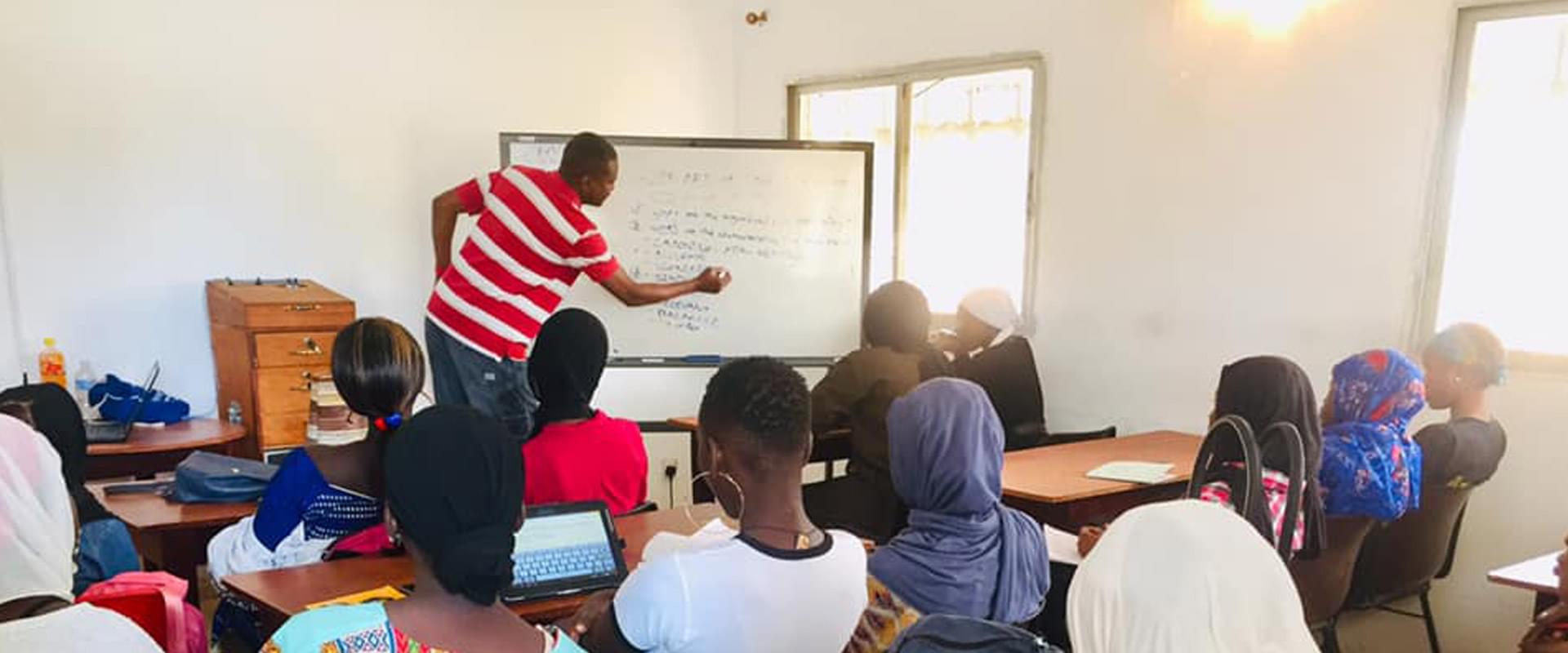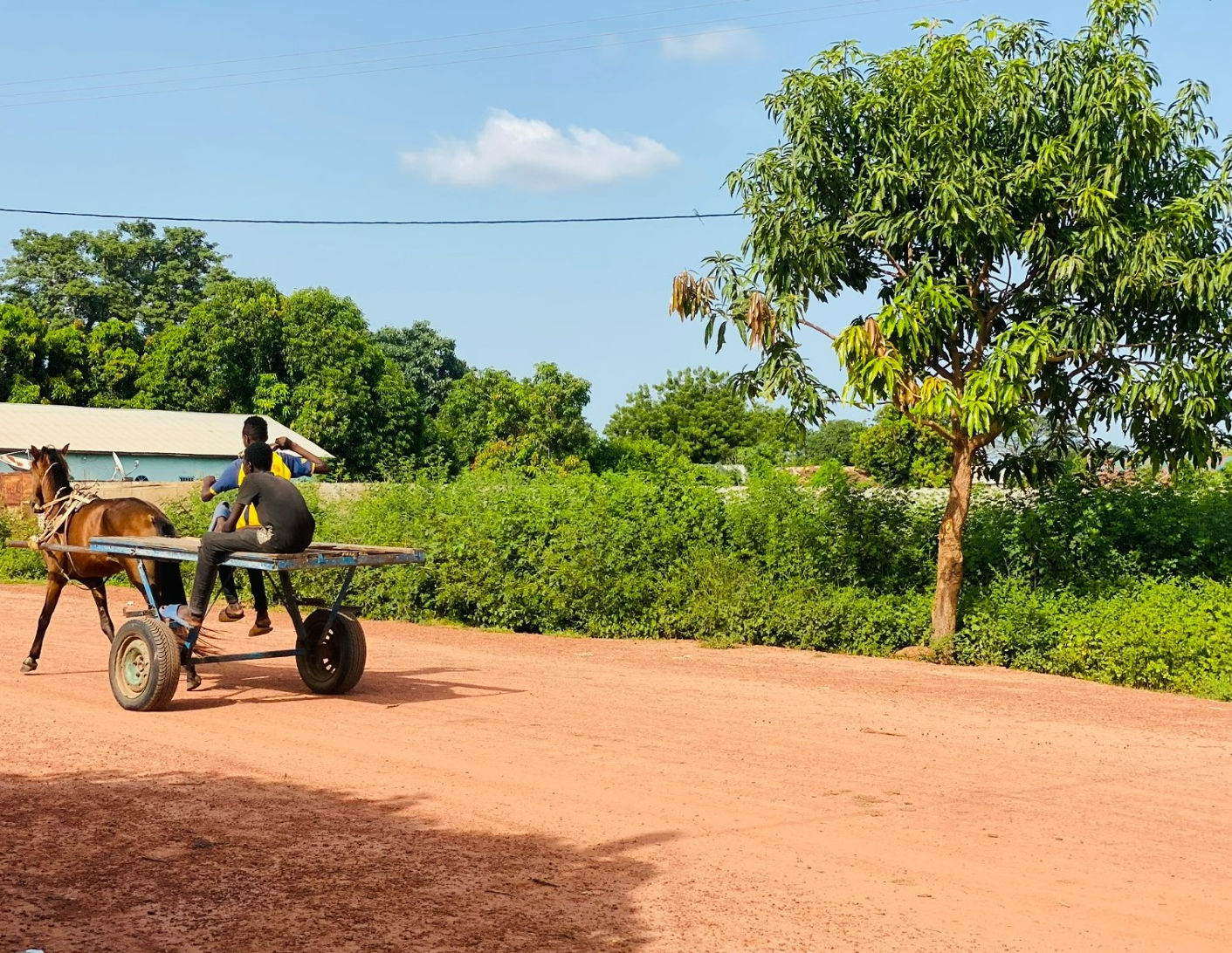
Nov 7, 2023 10:17 AM | Article By: Momodou B. Dem Edited By: Isatou Keita

Njaba Kunda
For several decades, Gambia's agricultural sector stood as the country's primary economic driver, contributing around 17.8 percent of the Gross Domestic Product (GDP). In 2016, it trailed behind the services sector, which accounted for 68.8 percent of the GDP.
According to a World Bank Report in 2017, the agricultural sector employed 27.1 percent of The Gambia's workforce. Notably, women played a significant role in this sector, with a higher likelihood of involvement compared to men. Data from the International Labour Organization revealed a 10-percentage point gender gap in agricultural participation between 2000 and 2017. With over two-thirds of Gambians residing in rural areas and depending on agriculture for their livelihoods, this sector was a prime target for investment, aligning with the country's National Development Plan (NDP) objectives focused on poverty reduction.
Despite its historical significance in employment and the nation's economy, the agricultural sector has exhibited mixed performance over the years. Reports indicate that it has consistently underperformed in comparison to other economic sectors, with its GDP contribution declining from 29.0 percent in 2010 to 16.9 percent in 2019, as reported by the World Bank.
Njaba Kunda, a rural community in the heart of Baddibu, was once synonymous with Gambia's thriving agricultural sector. The livelihoods of its residents predominantly relied on farming. However, this narrative has undergone a dramatic transformation over the years. The youth, who were once the backbone of agriculture, have increasingly chosen irregular migration to Europe as a means to make ends meet, leaving their farms behind.
Since January 2016, an estimated 21,705 Gambians have embarked on the perilous journey to Europe by sea, representing approximately 1% of the nation's population at that time. Njaba Kunda, a village of approximately 5,000 people in Central Baddibu district, has witnessed a significant exodus of its young population, with more than 700 of its youth now residing in Europe and neighboring countries. Tragically, over 30 individuals from Njaba Kunda have lost their lives in the past years while attempting this journey, with many perishing in the Mediterranean. It is important to note that the majority of these migrants are men, leaving behind grieving families, including wives, children, and parents.
Ward Councilor Alhagie Jaiteh remarked on the impact of migration, stating, "In Baddibu Njaba Kunda here, many people have migrated. Most of them took the irregular route known as the 'Backway.' Those who survived the journey have brought significant development to the village. However, some have lost their lives in Morocco, Libya, or at sea. Approximately, every year, 3 to 4 people perish on this perilous journey."
Fatou Kanteh, a prominent female community leader, expressed her concern about the irregular route to Europe chosen by the village's youth. She emphasized the risks associated with such journeys and urged the young to explore opportunities closer to home. "As a mother, I cannot advise anyone to take the irregular route to Europe. It is perilous, and many have lost their lives. Our youth can stay and make a decent living here. There are opportunities available, including farming, poultry, and small-scale businesses," she stated.
Although the rate of migration has declined in recent times, the youth continue to leave Njaba Kunda. Lamin Kanteh, a teacher and District Youth Chairperson of Lower Baddibu, shared the pressures faced by young people who remain in the village. Lamin believes that his salary is insufficient to sustain his livelihood. Inadequate income sources and societal expectations have pushed many young people to embark on the irregular journey to Europe. Lamin explained, "Several factors drive our youth to take the irregular route to Europe, one of which is societal pressure. Nowadays, if you are not in Europe or lack financial means, even earning respect in your own home becomes a challenge."
Lamin also highlighted some positive aspects of migration, stating that migrants in Europe have played a significant role in reshaping the village's economy. They have constructed solid houses, which were previously rare in the village.
However, the exodus of young people is having two contradictory impacts. On the one hand, migrants in Europe are sending remittances back to their families, positively impacting living standards and enabling investment in small-scale community businesses. On the other hand, the departure of many young men is changing the male-female balance in the village and will likely result in significantly lower birth rates. This places an even greater burden on those who remain to sustain the community's farming activities. During this year's farming season, nine compound heads abandoned their farms due to a lack of work force, as their young men had taken the irregular route to Europe, leaving them with the agricultural workload.
The impact of irregular migration on rural communities is multifaceted and depends on several factors, including the scale of migration, the characteristics of migrants, and the policies in place in both sending and receiving countries. In the case of Njaba Kunda, irregular migration has had a mixed impact on the community. Remittances from irregular migrants have improved living standards and supported small-scale community businesses. However, the mass exodus of skilled laborers, particularly farmers and gardeners, has resulted in a brain drain, leading to a shortage of skilled workers in the community. Irregular migrants are also at an increased risk of exploitation and abuse.
Muhammed Lamin Dibba, a Migration Expert, pointed out, "It is important to note that the impacts of irregular migration on rural communities like Njaba Kunda are not always straightforward. While remittances can have a positive impact on living standards, they can also lead to inflation, making it more challenging for locals to afford goods and services. Moreover, while the brain drain can create a shortage of skilled workers, it can also create opportunities for others to step up and fill those roles."
According to the World Bank, remittances to The Gambia averaged US$181 million annually during 2013-2015, equivalent to 20% of the GDP in 2014. These remittances have tripled since 2006 and are expected to have significantly increased since then. The Central Bank of The Gambia disclosed that the country received $712 million in remittances in 2022.
While remittances from migrants make a substantial contribution to The Gambia's economy and the well-being of families, many, including the government, discourage irregular migration to Europe. To address the outflow of young migrants, especially from rural areas, Migration Expert Dibba suggested that governments could create economic opportunities in these regions by investing in agriculture, infrastructure, and education. These measures can reduce poverty and unemployment, making rural areas more attractive places for young people to live.
Comments (0)
4 Likes
Leave your thought here
Your email address will not be published. Required fields are marked *